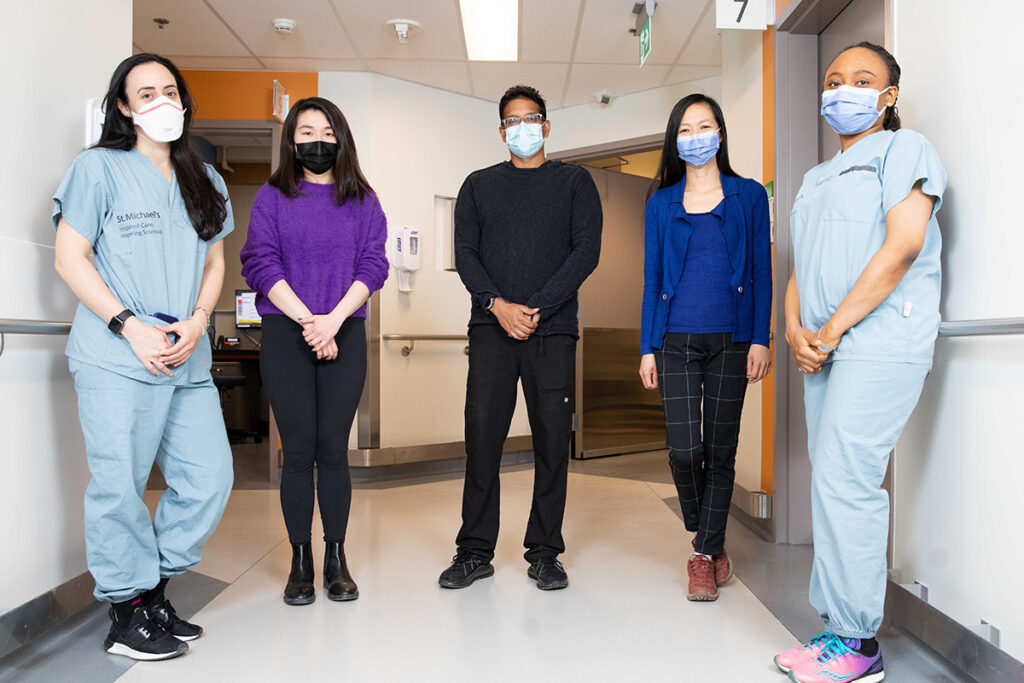This team is doing everything they can to restore sight. Here’s how

Diseases don’t stop in a pandemic. Neither do our researchers. In this series, we highlight Unity Health research projects that have persisted despite lockdowns, work-from-home arrangements and a global focus on another disease entirely. Here are their stories.
Research goals: To improve and save vision for patients with retinal diseases
Project lead: Dr. Rajeev Muni, researcher at the Li Ka Shing Knowledge Institute
Some of the patients in Dr. Muni’s clinic have experienced a major shock: one day they are able to see normally, and the next they cannot see at all.
This can occur with several retinal diseases, including wet age-related macular degeneration, a condition in which the retina, the part of the eye that interprets light and sends visual cues to the brain, is damaged by bleeding and swelling underneath and within the retina. Like the other eye and retinal diseases Dr. Muni and his team study and treat, it can cause temporary or permanent blindness.
“It can be quite surprising for patients who have lost sight, and we do everything we can to restore it,” he says.
Dr. Muni’s research focuses on treatments that improve and save the vision of patients who have conditions such as wet age-related macular degeneration. When the pandemic was declared, his team was running two studies that involved injecting medication into the eyes of patients on a fixed schedule, and collecting fluid from the front of the eye for the Unity Health Toronto Research Biobank. By analyzing the collected fluid, the research team hopes to discover tailored treatments and create personalized care.
Dr. Muni’s team was able to continue this research on site as it was essential treatment and could be done in tandem with patients’ regular eye visits.
Though the studies are still in recruitment because there was less clinic time during which to add patients to the clinical trials, Dr. Muni hopes they will be able to analyze interim data in the next few months.
“Our main objective with these studies is to maximize the effect of treatment and minimize the impact on the health care system and patients so they’re not receiving unnecessary injections or treatments but visual outcomes are optimized” he said.
“I really appreciate all the work the whole team did to continue the science and ensure we didn’t lose too much ground.”
Now, he hopes the lab will be able to ramp up the research pipeline and get a few other projects underway.
“St. Michael’s is one of the largest centres in Canada for the retinal diseases, and that gives us a great opportunity to carry out research.”
More Unity Health research project stories
- Scientists are tackling a disease that strikes in the prime of life
- This powder could stop bleeding earlier for trauma patients
- No strangers to pandemics, HIV and infectious diseases researchers study new ways to treat and prevent viruses
- How Unity Health researchers are working to foil the ‘great masquerader,’ a rare disease that leaves many undiagnosed
By: Ana Gajic
